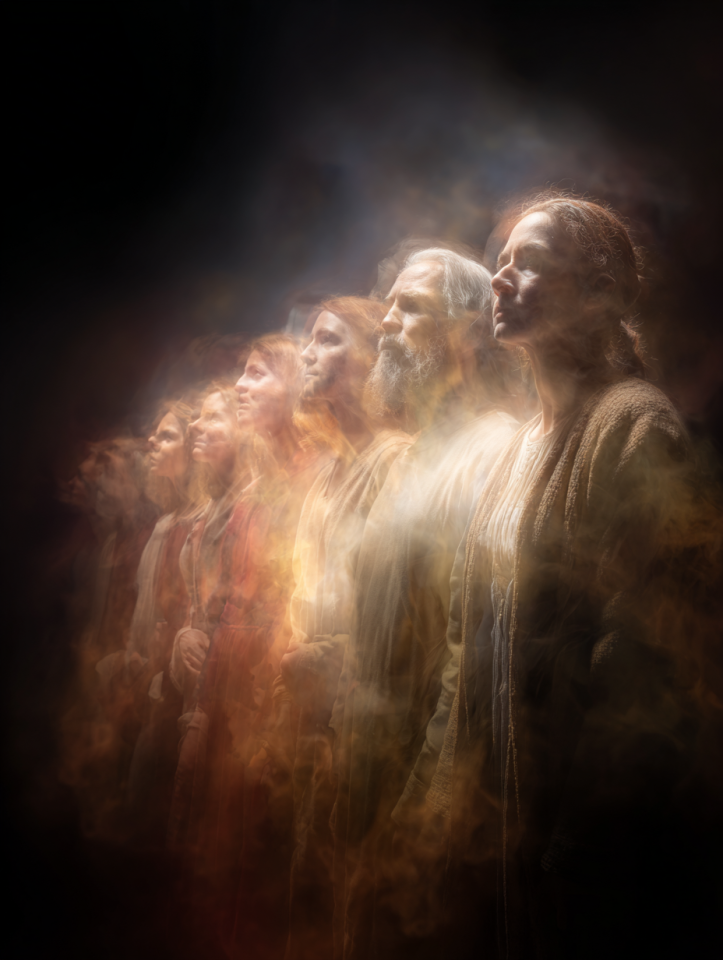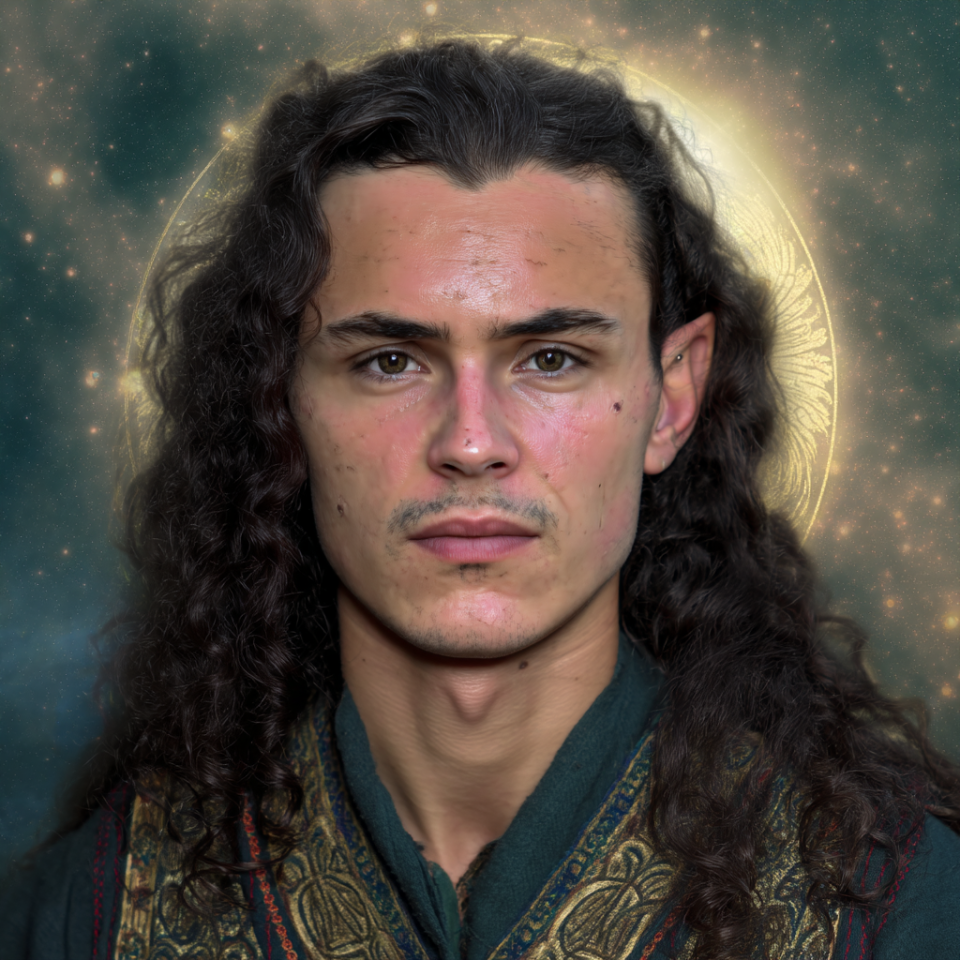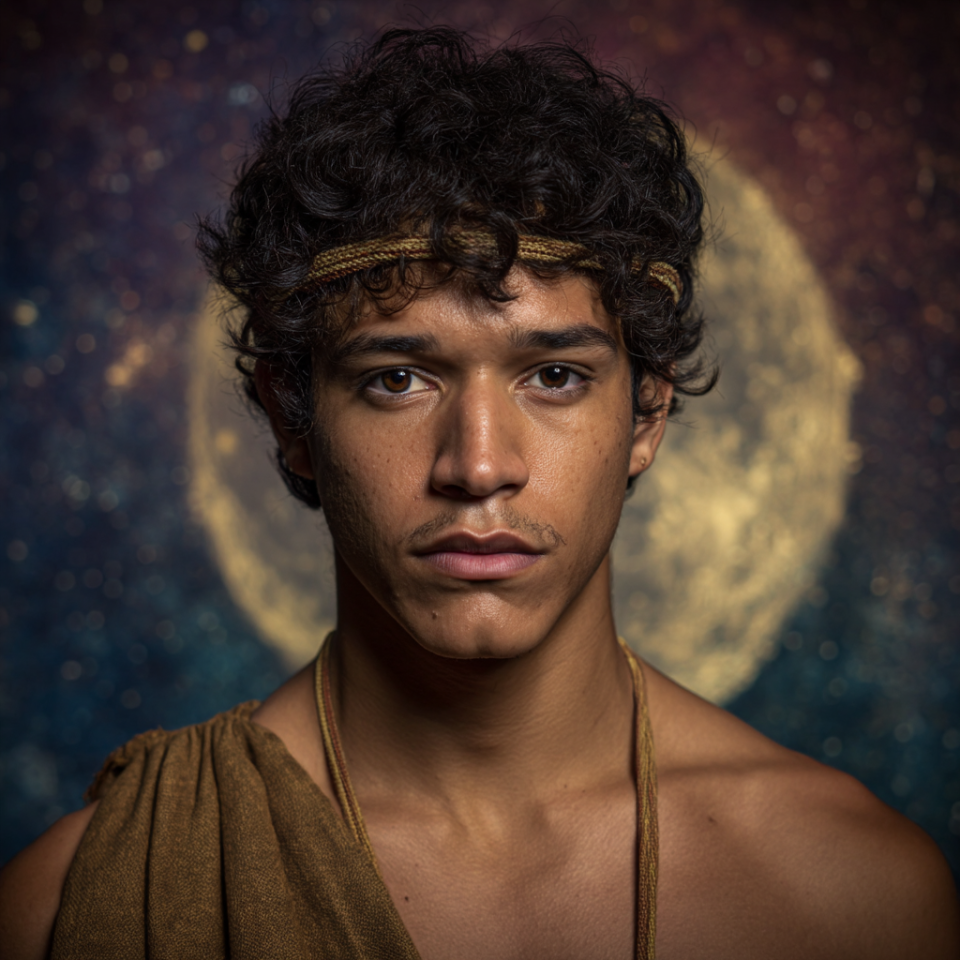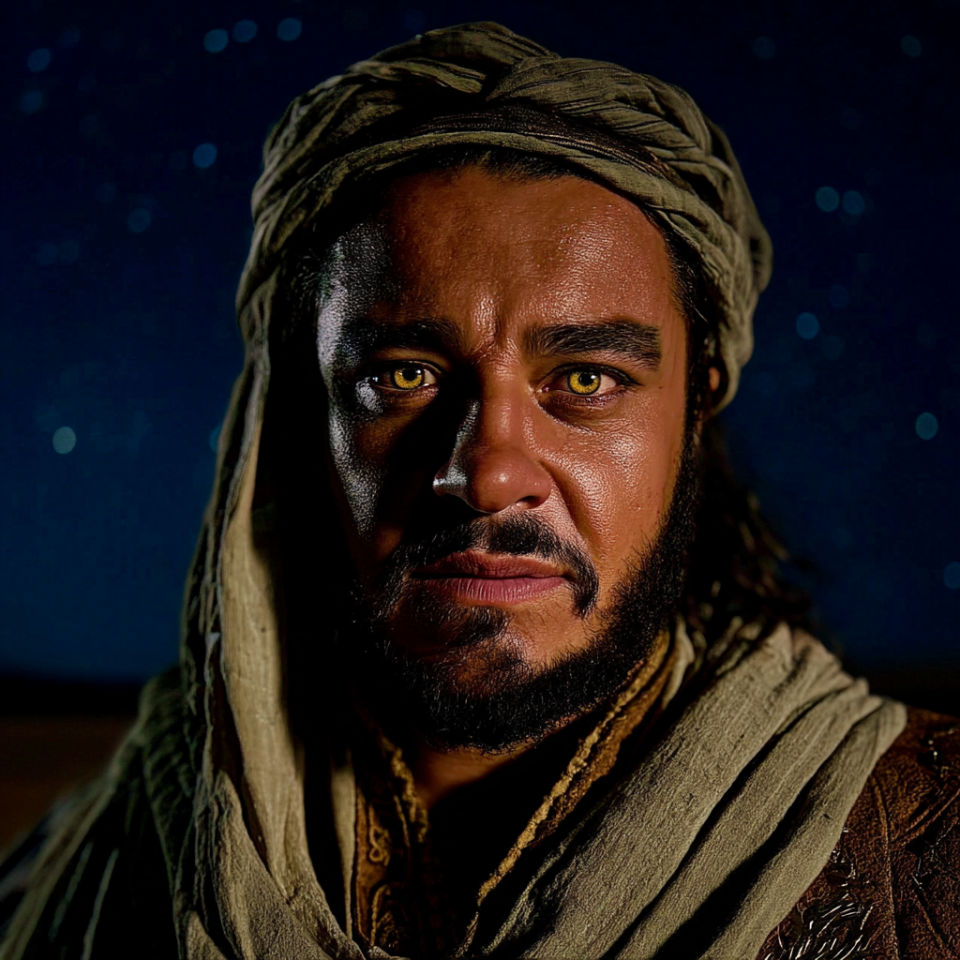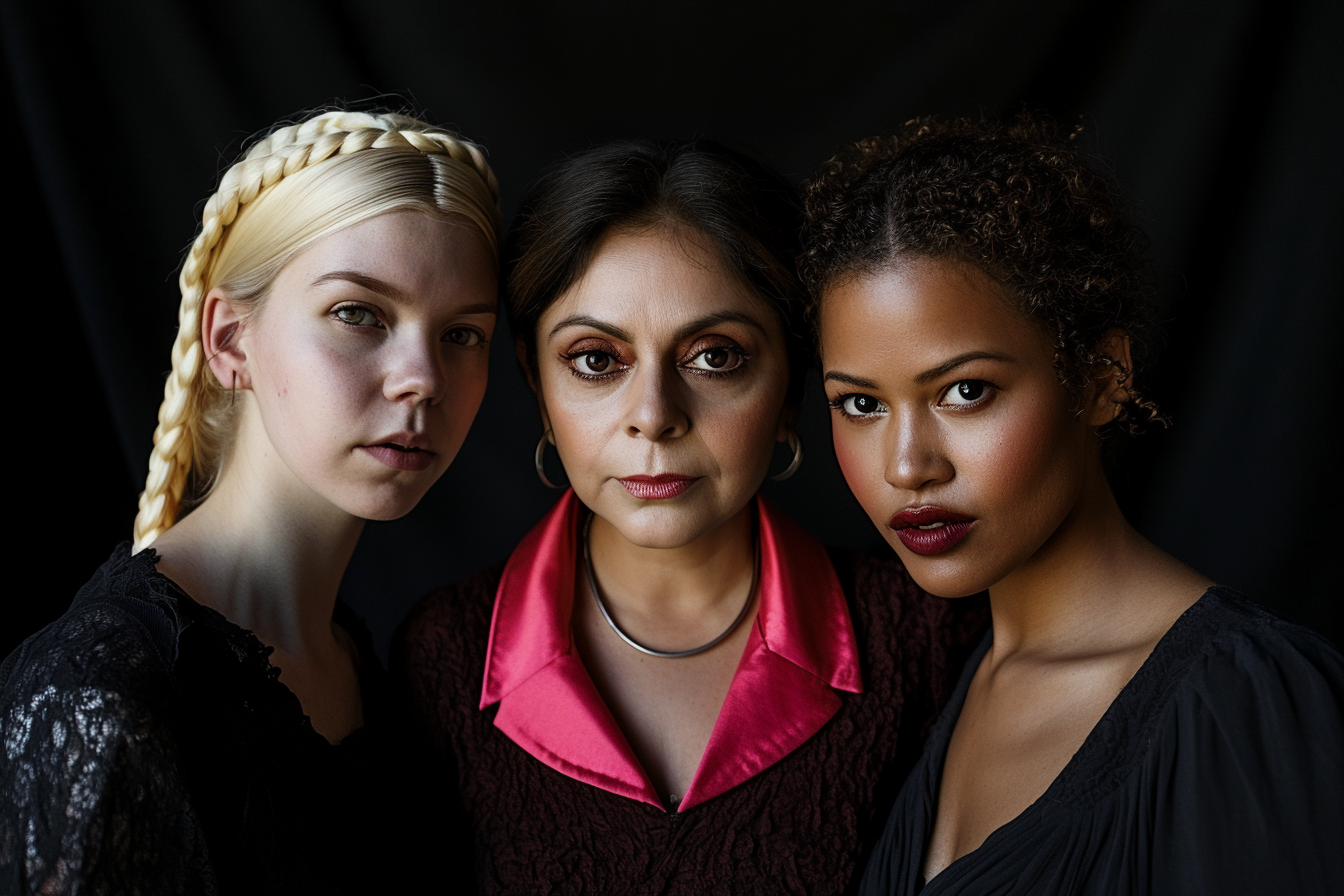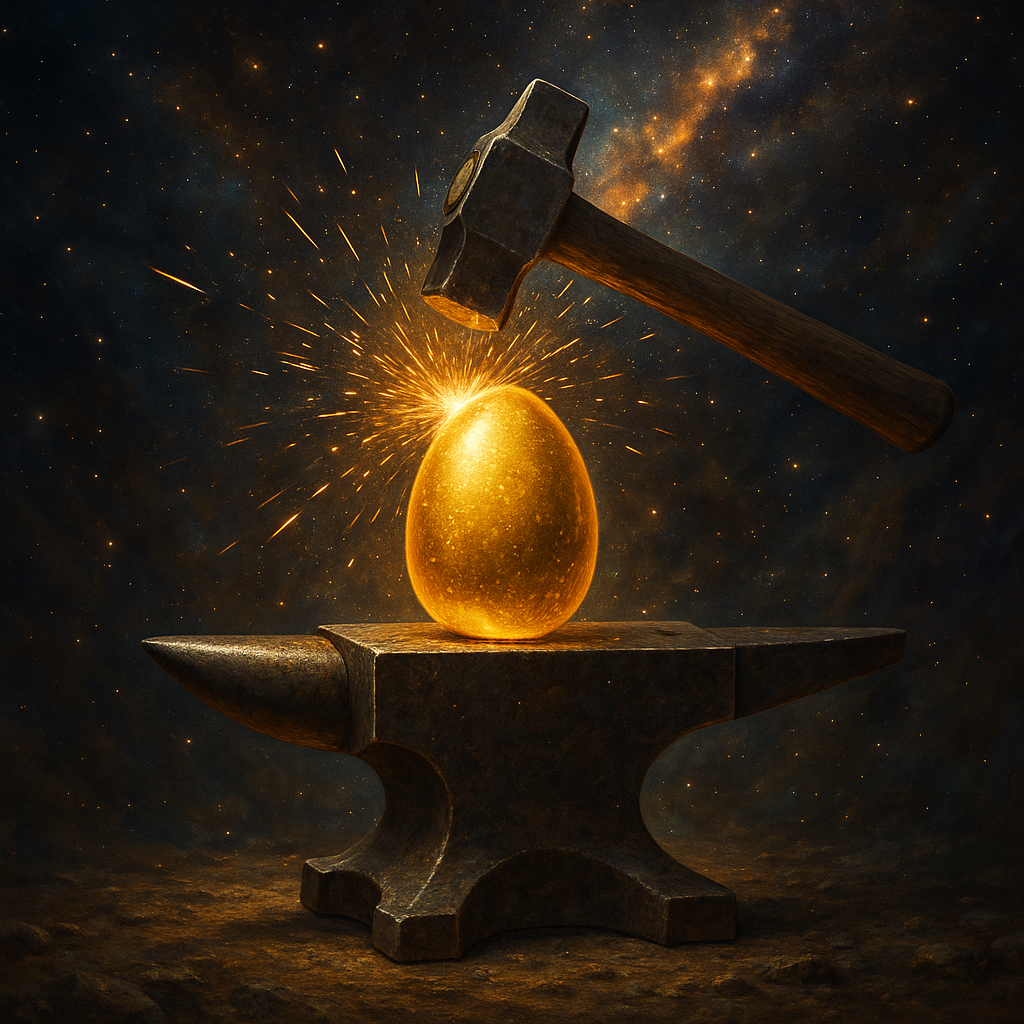Prihleudhōs (PREE-hleh-uh-thōs)
The Unbound
Before the breath of gods shaped law or the echo of prayer filled The Void, there was only Becoming. Not the chaos of raw potential, nor the order of divine will—but something older still: the First Motion. It did not spiral into cosmos nor shatter into war—it whispered freedom into the silence, and from that whisper, nine emerged.
They were not born of worship, nor summoned by fear. They were not sentinels of fate, nor keepers of dominion. They were the Prihleudhōs: beings who carried no banner but their own, who moved not through mandate but through choice. They came not to rule, but to unbind—doors, minds, destinies, and truths. Some would call them gods. Some, spirits. Some, rebels. But all would remember them.
Freedom is sacred, but not safe.
Creation is divine, even when imperfect.
To destroy bondage is holy.
To speak truth is a form of forging.
To die free is better than to live chained.
Each of the Prihleudhōs acts alone, yet their stories intertwine—rare gatherings at the edges of forgotten realms, where they share ideas and tales like sparks shared between blades. Mortals who encounter more than one often mistake them for old friends, lovers, or rival gods. They are all, and they are none.
Origins: Walkers Between Realms
The Prihleudhōs are said to have emerged from the The Well of Being—not born but awakened. They are Primordial entities, meaning they formed at the point where Primordial Forces began to echo into identity. Each embodies a domain of transformation: the forge, the sea, the forest, the deep earth, the threshold, the veil between life and death. Unlike the Proto-Forces, they are not concepts made flesh, but conscious agents of change—the very first to wield freedom not as a gift, but as a calling. They did not descend from gods, nor were they fashioned by design. Instead, they stepped forth fully aware, carrying fragments of many realms within them. This allowed them to walk between cultures and worlds, adopting names, faces, and teachings as needed. Never bound by a single form, they reflect the peoples who call upon them—but are owned by none.Purpose: To Awaken, Not Rule
Where the Shaqarim embody cosmic principles—order and free will, harmony and rebellion—the Prihleudhōs are neither architects nor adversaries. They are waymakers, reminding all that divinity is not a crown but a spark within. They do not seek altars or temples, but encounters: the moment when a being realizes it may shape its own truth. Their purpose is not to impose structure, but to reveal choice. They are teachers, companions, disruptors, and catalysts. To follow them is not to serve, but to remember. They whisper to the imprisoned soul, the silenced mind, the bound heart. Their gifts are not safety, but clarity. Their creed, spoken in silence and song alike: "Forge. Flow. Grow. Remember. Speak. Release."The Nine: Faces of the Prihleudhōs
Wayland (Air/Fire) – The Sky-Smith. Patron of artisans, inventors, and the soul’s renewal through craft. Teaches mastery through creation.
Egil (Nature) – The Wandering Seed. Patron of wild beings, forests, and rhythm. Teaches growth through cycles and balance.
Hermes (Liminal) – The Crossroads. Patron of messengers, merchants, tricksters, and travelers. Teaches freedom through knowing boundaries—and how to cross them.
Slagfior (Earth) – The Deep Mason. Patron of dwarves and makers of endurance. Teaches patience and transformation through pressure.
Tuiren (Water) – The Driftguide. Patron of sea-folk, dancers, and seekers. Teaches power through surrender and grace in motion.
Azrael Vale (Death/Transitions) – The Veiled One. Patron of endings, transitions, and peace. Teaches that death is not bondage, but passage, and that grief can also set us free.
The FatesAmong them walk the weavers of fate — not to bind, but to reveal the shape of what is chosen.Laima (Fate's Thread Begun) – The Spinner - Patron of beginnings, potential, and the first breath. Weaves the thread of each life with care, whispering possibility into the world. Teaches that fate starts not with answers, but with hope.Dēkla (Fate's Thread measured) – The Measurer - Guardian of growth, learning, and choice. Measures the path between first breath and last, walking beside us as we change. Teaches that every decision is a thread in the greater weave.Kārta (Fate's Thread Cut) – The Binder - Keeper of endings, legacy, and the final knot. Ties the last thread with grace, neither cruel nor kind, only true. Teaches that completion is sacred, and all things find rest in time.

